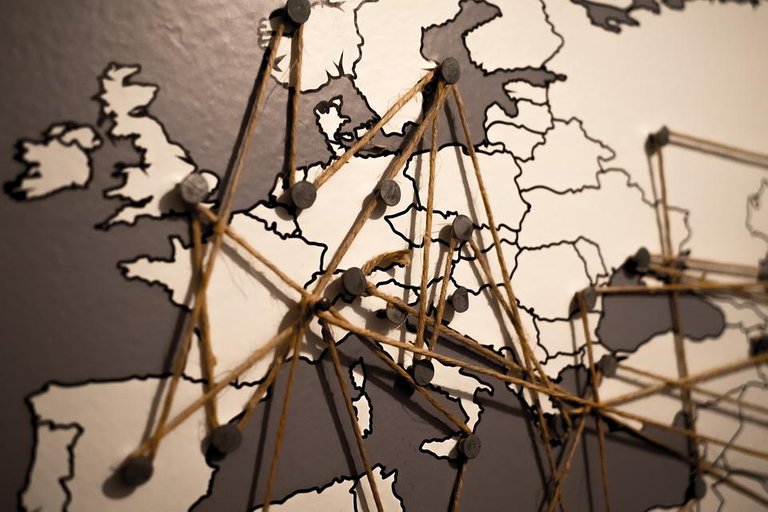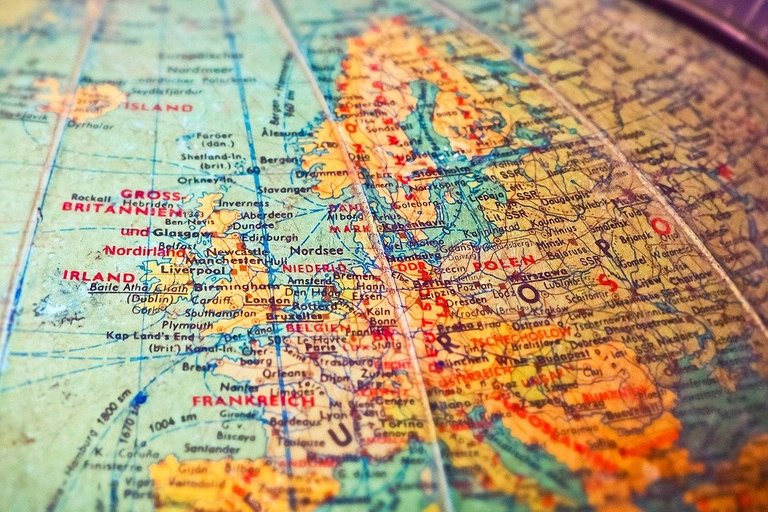The repercussions of the Ukrainian crisis on the world map
If we look beyond the suffering and humanitarian crisis caused by Russia's invasion of Ukraine, the global economy as a whole will feel the effects of slower growth and faster inflation.
These effects will flow through three main channels. First, the rise in the prices of primary commodities such as food and energy will push inflation further up, which in turn will erode the value of incomes and weaken demand. Second, neighboring economies in particular will grapple with disruptions in trade, supply chains, and remittances, and experience a historic surge in refugee flows. Third, the decline in business community confidence and increased investor uncertainty will lead to a weakening of asset prices, tightening of financial conditions, and possibly stimulating the exit of capital flows from emerging markets.
Since Russia and Ukraine are major commodity producers, supply chain disruptions have caused global prices to rise sharply, particularly oil and natural gas prices. Food costs have jumped in light of the historical level reached by the price of wheat, as Ukraine and Russia contribute 30% of world wheat exports.
If we look beyond the global implications, the countries that will feel the most pressure are those that have direct trade and tourism relationships and financial exposure. As for the economies that depend on oil imports, they will record higher rates of deficit in public finance and trade and will witness greater inflationary pressures, although higher prices may benefit some oil-exporting countries such as countries in the Middle East and Africa.
Severe food and fuel price hikes would drive greater risks of unrest in some regions, from sub-Saharan Africa and Latin America to the Caucasus and Central Asia, while food insecurity is likely to increase in some parts of Africa and the Middle East.
Although it is difficult to gauge the frequency of these echoes, we do see potential to lower our growth forecasts next month when we present a clearer picture in our WEO and in our regional assessments.
In the longer term, the war could fundamentally alter the global economic and geopolitical order if energy trade shifted, supply chains were reconfigured, payment networks fragmented, and countries rethought their reserve currency holdings. Increasing geopolitical tensions threatens to increase the risks of economic fragmentation, particularly at the level of trade and technology.
Europe
The losses that Ukraine is incurring are already heavy. Unprecedented sanctions against Russia will weaken financial intermediation and trade activities, which will inevitably lead to a deep recession there. The depreciation of the ruble spurs inflation and leads to a further decline in the living standards of the population.
Energy is the main channel for the transmission of repercussions in Europe, where Russia is a major source of its natural gas imports. This may also result in wider disruptions in supply chains. These effects will result in higher inflation and a slower recovery from the pandemic. Eastern Europe will see rising funding costs and a boom in refugee flows, absorbing most of the 3 million refugees who recently fled Ukraine, UN data show.
European governments may also face fiscal pressures from increased spending on energy security and defense budgets.
While external exposures to falling Russian assets are limited by global standards, pressures on emerging markets may increase if investors seek safer havens. Likewise, most European banks' direct exposures to Russia are limited and manageable.
Caucasus and Central Asia
If we look outside Europe, these neighboring countries will feel even greater consequences from the recession in Russia and the sanctions imposed on it. Close ties with it at the level of trade and through payment systems will curb trade and limit remittances, investment and tourism, which will harm economic growth and negatively affect inflation, external and fiscal accounts.
While higher international prices are expected to benefit commodity-exporting countries, these countries face risks of reduced energy exports if sanctions are extended and applied to pipelines passing through Russia.
Middle East and North Africa
The region is likely to face severe ripple effects from rising food and energy prices and tight global financial conditions. In Egypt, for example, 80% of its wheat imports come from Russia and Ukraine, and it is a popular tourist destination for both countries, and it will also witness a contraction in the expenditures of its visitors.
Policies to contain inflation, such as increasing government subsidies, will put pressure on already weak fiscal accounts. In addition, worsening external financial conditions may stimulate capital outflows and add to the adverse effects on growth in countries with high debt levels and large financing needs.
Rising prices may increase social tensions in some countries, such as those with weak social safety nets, few jobs, limited fiscal space, and unpopular governments.



Huh?
https://sputniknews.com/20221014/statistics-almost-half-of-eu-countries-increased-imports-of-russian-goods-in-june-1101840839.html
https://www.economist.com/finance-and-economics/2022/10/11/as-europe-falls-into-recession-russia-climbs-out
https://www.daily-sun.com/post/650211/Resilient-Russian-economy-surfs-sanctions-on-oil-boom
https://russialist.org/oil-exports-helping-cushion-russian-economy-imf/
The Ruble is 20 points stronger than before the SMO.
They shot themselves in the foot by sanctioning Russia.
The west Confiscated some 300 billion dollars from the Russian Federation, but you don't seem to care about that, spinning the absurdity that Russia is dEvAsTaTeD bY sAnCtIoNs.
Huh? Kazakhstan? Armenia, Uzbekistan? They are doing much better than Europe.
Because they didn't impose sanctions on Russia!
As for Africa, last I checked None of those countries imposed sanctions either, and Burkina Faso wants to join Russia, in fact a couple of African countries have begged Russia to let them volunteer for the SMO.
(If you can't see my images, formating, or links on peakd or hive.blog, as both frontends refused in the past to even display the link for my images or my formating, you should be able to see everything on the ecency. com frontend)
Hilarious: